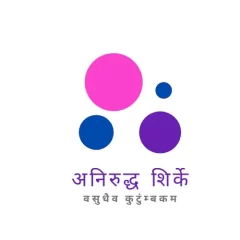
Public Administration, as a field, encompasses the organization, implementation, and management of government policies and programs. It serves as the backbone of governance, ensuring the effective functioning of public institutions and the delivery of services to citizens. The evolution of public administration can be traced back to ancient civilizations, where the need for organized governance became evident. Over time, this field has witnessed significant transformations, adapting to the changing needs and complexities of societies. Let us Understand, Public Administration in World Government with key roles in Policy Implementation & Governance.
Introduction to Public Administration in World Government
The roots of public administration can be found in ancient civilizations, such as Mesopotamia and Egypt, where administrative structures were developed to govern territories and manage resources. The Roman Empire further contributed to administrative practices, emphasizing the importance of a bureaucracy to oversee vast territories. In the modern era, the emergence of the Weberian bureaucracy in the late 19th and early 20th centuries laid the foundation for contemporary public administration theories. Today, public administration is influenced by a diverse range of perspectives, including classical, neoclassical, and contemporary theories.
Skilled Labor in Public Administration
The demands placed on public administration have become increasingly complex and multifaceted. As a result, there is a growing need for skilled labour in this field. Skilled administrators possess the combination of knowledge, expertise, and soft skills required to navigate the challenges of modern governance. These skills include strategic thinking, communication, problem-solving, and the ability to adapt to rapidly changing political and social landscapes.
Demand and Supply Dynamics
The demand for skilled individuals in public administration is on the rise globally. Governments, both developed and developing, recognize the importance of efficient and effective administration in achieving their objectives. The supply of skilled labour, however, faces challenges due to factors such as educational gaps, inadequate training programs, and the need for continuous professional development. Bridging the gap between demand and supply is crucial for ensuring the sustained effectiveness of public administration worldwide.
Need for Skilled Persons in Administration and Organization at the Global Level
At the global level, the need for skilled individuals in administration and organization is paramount. Issues such as climate change, global health crises, and humanitarian emergencies require coordinated efforts across borders. Skilled administrators play a key role in facilitating international cooperation, diplomacy, and the implementation of policies that address shared challenges. The United Nations and other international organizations serve as platforms for collaboration, emphasizing the significance of skilled personnel in fostering global governance.
Administration, Planning, and Execution of Humanitarian Projects
In the realm of humanitarian projects, administration, planning, and execution are indispensable components. Humanitarian efforts often involve complex logistics, resource management, and coordination among diverse stakeholders. Skilled administrators contribute to the success of these projects by ensuring efficient allocation of resources, timely response to crises, and adherence to ethical and legal standards. Effective administration in humanitarian endeavours leads to improved outcomes for vulnerable populations and contributes to the overall well-being of communities.
Employment Opportunities and GDP Contribution
The demand for skilled personnel in public administration opens up diverse employment opportunities. Careers in government agencies, international organizations, non-governmental organizations (NGOs), and consulting firms beckon individuals with the right skill set. Moreover, the contribution of public administration to the gross domestic product (GDP) is substantial. Efficient governance enhances economic development, attracts investments, and fosters an environment conducive to innovation and entrepreneurship.
World Government Support and Execution
The support and execution of public administration at the global level require collaboration among governments, international organizations, and other stakeholders. Global challenges, such as pandemics, climate change, and migration, necessitate coordinated efforts. The role of world governments in supporting initiatives that enhance the capacity and effectiveness of public administration cannot be overstated. By fostering a culture of collaboration and knowledge-sharing, governments contribute to the creation of a more resilient and responsive global governance system. Read about Megaprojects in the world.
Public administration is a cornerstone of governance, shaping the policies and programs that impact societies worldwide. The evolution of this field reflects the changing needs and complexities of governance, from ancient civilizations to the contemporary era. The demand for skilled labour in public administration is rising, driven by the need for effective governance, international cooperation, and successful humanitarian projects. The world’s governments play a crucial role in supporting and executing initiatives that strengthen public administration at the global level. As we navigate the challenges of the 21st century, skilled administrators will continue to play a pivotal role in shaping a more equitable, efficient, and sustainable world.
